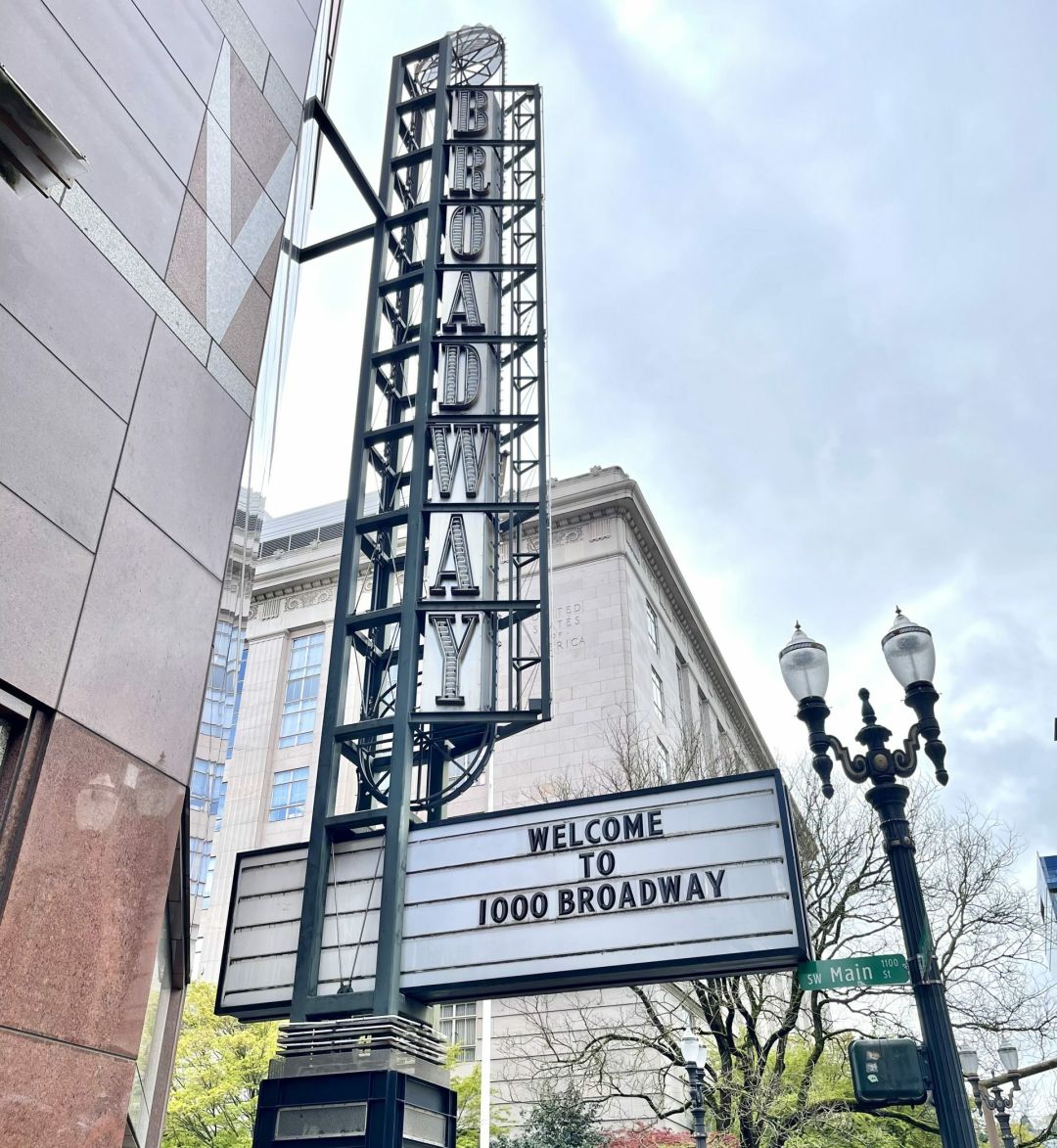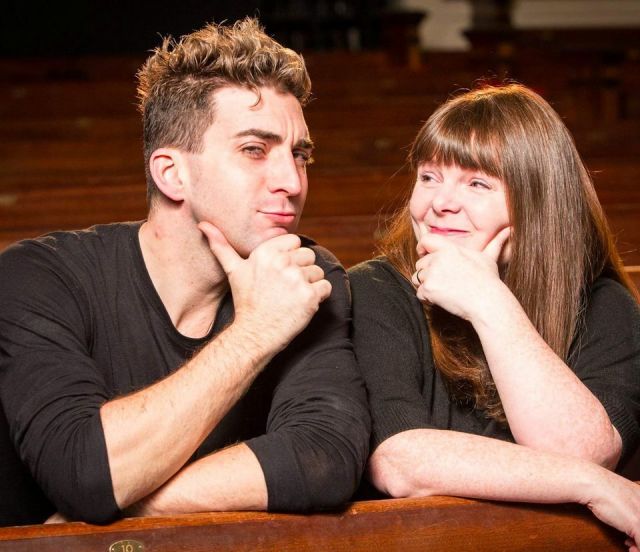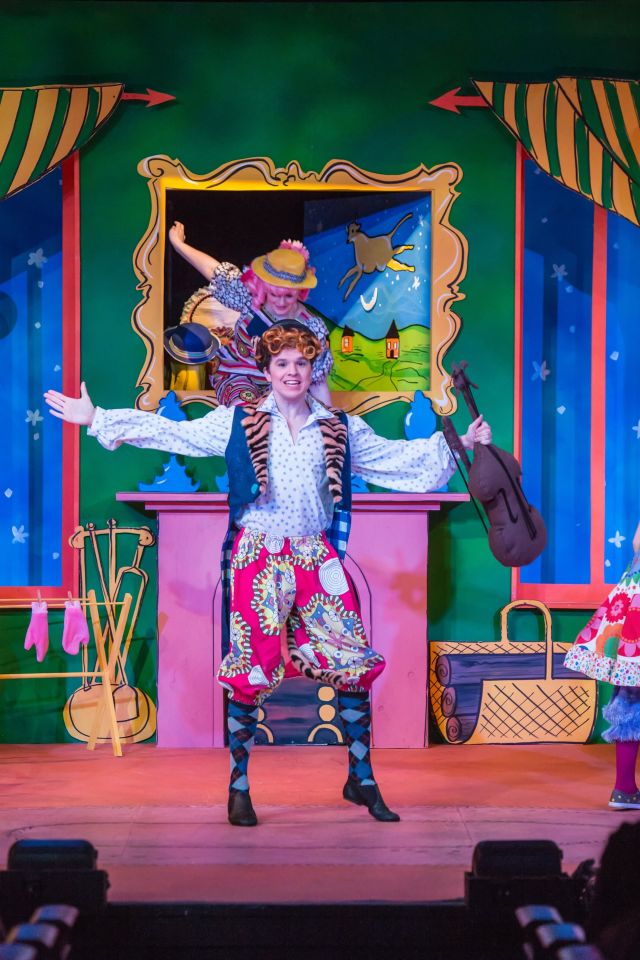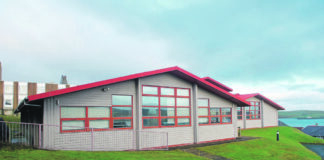
Over brunch on a Montavilla sidewalk, Sarah Jane Hardy considers whether to give herself a pat on the back. Since 2006, Hardy has been the artistic director of Northwest Children’s Theater, a professional company with an education wing that employs and trains hundreds of young artists across the Portland metro area every year. A decade and a half into the job, does she ever stop to think about how many pupils she’s accumulated?
“I don’t stop much,” Hardy admits. “And I’m inclined to reflect only to move forward.” On the rare occasion she does slow down, by choice or by force, the Liverpool-born director and choreographer confesses the army of mentees she’s amassed can overwhelm her—especially when its members wind up on TV or book national tours or find success in other, nontheatrical pursuits. “It is a lot of kids, isn’t it,” she finally concedes, laughing a little. “And I’m still here, going into that same building.”
Well, not for long. Throughout its entire 29-year history, Northwest Children’s Theater has anchored the domed, imposing Northwest Neighborhood Cultural Center on the edge of Nob Hill, itself a former Christian Science church built in 1909. In January 2023, though, NWCT will leave the cultural center behind to find a new home among the bright(ish) lights of Broadway.
For the better part of the past decade, the company has known its days in the cultural center were numbered. The age of the building plus a string of failed attempts to acquire it from its operating board made it clear that NWCT would have to seek space elsewhere by the end of 2022. Hardy and Nick Fenster, the company’s managing director, began sizing up potential new homes in 2014, and by mid-2019, they’d purchased a piece of land near Montgomery Park. The plan was to build a brand-new facility that would run about $15 million, as opposed to the estimated $30 million it would take to make necessary improvements to the cultural center.
Then, six months into the capital campaign for that venture, the pandemic struck, and NWCT released the land. Fenster and Hardy went back to the drawing board, finding by mid-2021 that the cratered commercial real estate market offered new—if not ideal—solutions. Fenster compares some of them to avant-garde dining. “You know when you get, like, gelatin cubes, and the vegetables are on a side dish, and you put them in your mouth and drink some hot water, and it becomes a soup? It was the children’s theater equivalent of that,” he says. Parking two blocks away; shared bathrooms with fellow commercial tenants; classrooms in separate facilities from the performance space. For various reasons, each one of them failed.
By the end of 2021, spirits were low. Falling in love with different versions of the company only to see each one dissolve had taken an emotional toll. Fenster was prepared to hand over the reins on the project when Turner Construction, which had consulted on the Montgomery Park endeavor, called in December about a building they were working on downtown. “The minute we walked into it, we were like, ‘This fits so well to the best version of ourselves,’” says Hardy.

That building was 1000 SW Broadway, a half-block complex across from the Portland’5 Center for the Arts that currently houses a parking garage, a few legal offices, and a bank branch. Below street level, though, sits a four-plex movie theater that’s been abandoned since 2011. NWCT’s vision? Turn one auditorium into a 240-seat mainstage, one into a 120-seat black box, one into a classroom complex, and leave the final one intact to show second-run family films. They’ll dub it the Judy Kafoury Center for the Arts, or “the Judy,” after the company’s founding executive director. NWCT signed a lease in April, with an option to renew for up to 30 years, and plans to be operational in the Judy by January 2023; in total, the move will cost roughly $6 million in fundraising.
“I’ve been creatively dreaming about it now since January or February, and I feel like I’ve run down 5 percent of what’s possible in that space,” says Hardy. One major goal is to act as a presenter for other local and visiting companies, offering platforms to artists both within and outside the world of children’s theater. A road map is NWCT’s long-standing partnership with Anita Menon, a local Bharatanatyam dancer who has helped the company develop Indian dance-centered adaptations of The Jungle Book and the story of Chitrāngadā. “Our vision is a space where families can come back weekend after weekend, not wait seven or eight weeks between shows, and there will be something different happening in that building every time,” says Fenster.
In discussing the future of the company, Hardy inevitably returns to its past. She moved to Portland in late 2000—amid the Bush/Gore election debacle—and first took freelance work with NWCT in 2002 to make ends meet. At the time, she was mostly interested in rough-edged avant-garde work; children’s theater offered her few artistic thrills. She came on board as a teacher for high school–age actors, and in the process, planted seeds for what would become her operating philosophy. “I felt like a lot of college programs at the time were really brainwashy and dysfunctional and damaging to the creative spirit of young people,” Hardy says. “So one of my goals—this was a conscious decision—was to prepare young people to survive that landscape, and give them a stronger sense of self, and let them understand that their creativity is sort of their birthright.”
She first felt everything click when she directed a 2008 production of Go, Dog! Go!, adapted from P. D. Eastman’s slim children’s book into a high-energy, clown-centric, Rollerblading musical. The kids onstage were empowered; the families in the audience were engaged; Hardy had found a way satisfy her theatrical ambitions in the context of a surprisingly abstract 70-minute show about dogs in hats. “It was exhilarating,” she recalls. “It felt like that moment at dinner where you’re out with your friends and you’re just like, ‘This is why we’re here. This is what it’s all about.’”
Full disclosure: I wrote my college admissions essay about Northwest Children’s Theater. It’s where I saw my first play, took my first acting class, and performed in at least one mainstage production every year through middle and high school. I grew up 45 minutes outside of Portland, in a small, rural, unincorporated community, and several times a week, I would commute in to NWCT to get what I couldn’t at home.

NWCT is where I learned how to harmonize and do a timestep, sure, but it’s also where I met my first boyfriend, earned my first paycheck, assistant-stage-managed a regional theater production when I was 17 years old, and learned how to take my work seriously, even if that work put me in tap shoes and a bear suit for a production of Goodnight Moon the musical. I have tried and failed a million times to articulate the value of being treated like a capable adult with something to say when every other corner of your life is stained with self-loathing, but, at minimum, I do not think I would be writing this story in this magazine right now if NWCT had not invested in my success when I was 13 and gay and desperate to believe there was somewhere else for me to go.
Fenster’s ties run just as deep. He’s worked at the company professionally since 2009, and he started attending summer classes there when it opened in 1993. It’s where he met his wife, and where they’ve recently started sending their own daughter—to the same classes he took 29 years ago.
Nick and I knew NWCT as a three-level former Christian Science church on the corner of NW 19th and Everett. In the coming years, hundreds more will come to know it as an old movie theater beneath one of downtown’s main thoroughfares. It might change again after that. Maybe 40 years down the line, it will enter its deconstructed-soup era. “I really like the puzzle structure of making a theater company work,” Fenster admits. “You’re never done. You never actually reach stasis.”
As long as NWCT exists in some form, though, one thing is clear: young people will come, and they will locate their creative birthrights, and more likely than not, the company will orbit them in some fashion for most of their adult lives. And that deserves a pat on the back.








